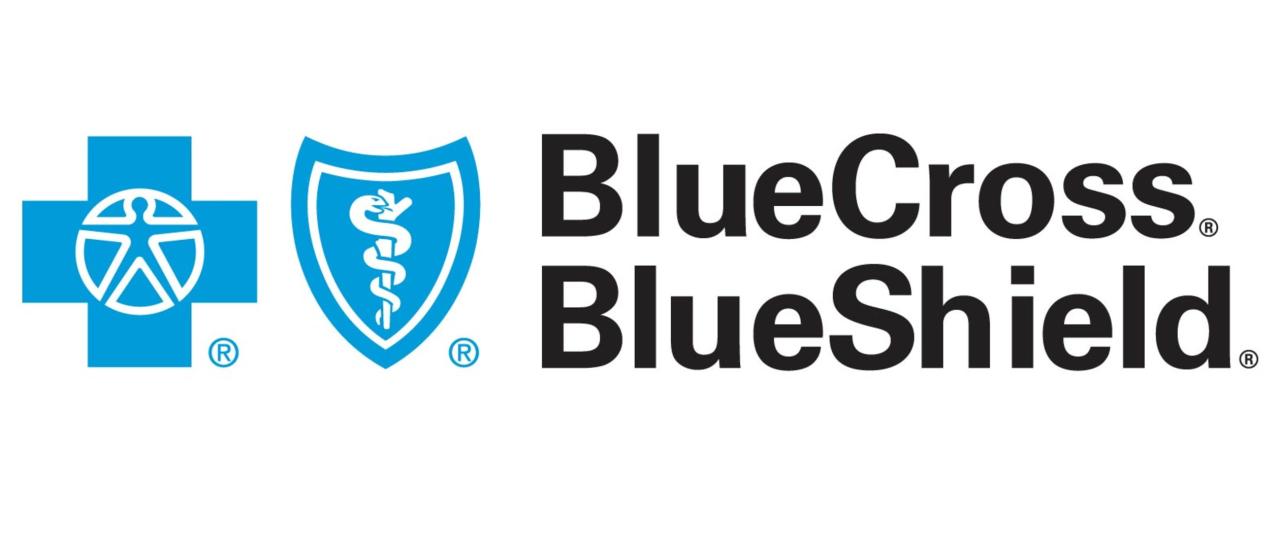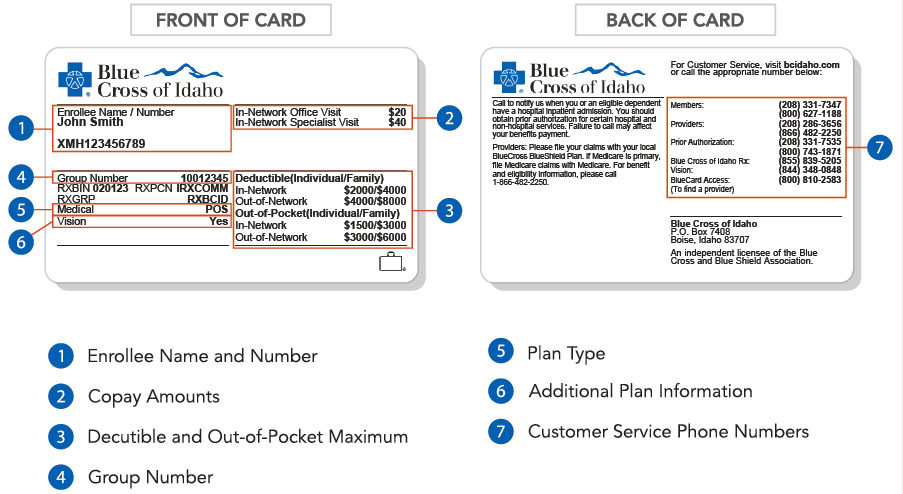Blue Cross health insurance stands as a prominent player in the American healthcare landscape, offering a range of plans designed to meet diverse needs. Founded on the principle of providing affordable and accessible healthcare, Blue Cross has evolved into a trusted name in the insurance industry. This guide delves into the intricacies of Blue Cross health insurance, exploring its history, plan types, coverage options, costs, and customer service. Whether you’re seeking individual coverage, employer-sponsored insurance, or Medicare or Medicaid options, this comprehensive overview provides valuable insights to help you navigate the world of Blue Cross health insurance.
From its humble beginnings as a non-profit organization, Blue Cross has expanded to encompass a vast network of providers and a diverse portfolio of plans. The organization’s commitment to quality healthcare has solidified its position as a leading provider, offering a variety of coverage options to suit different budgets and health needs. Understanding the nuances of Blue Cross plans, including premiums, deductibles, and out-of-pocket expenses, is crucial for making informed decisions about your healthcare coverage. This guide aims to demystify these aspects, empowering you to choose the right plan for your individual circumstances.
Blue Cross Health Insurance Overview
Blue Cross health insurance is a type of health insurance that is provided by a non-profit organization known as a Blue Cross Blue Shield (BCBS) plan. These plans are available in all 50 states and offer a wide range of health insurance coverage options.
History and Origins of Blue Cross Blue Shield
Blue Cross Blue Shield originated in the early 20th century. The first Blue Cross plan was established in 1929 in Baylor University Hospital in Dallas, Texas. This plan was designed to provide hospital coverage to teachers at Baylor University. The first Blue Shield plan was established in 1939 in California. It was designed to provide surgical coverage to physicians. Over time, these plans expanded and merged to become the national network of Blue Cross Blue Shield plans that we know today.
Types of Blue Cross Health Insurance Plans
Blue Cross health insurance plans are offered in a variety of forms, including:
- Individual health insurance plans: These plans are purchased by individuals or families and provide coverage for medical expenses.
- Group health insurance plans: These plans are purchased by employers and provide coverage to their employees.
- Medicare Supplement plans: These plans are designed to supplement Medicare coverage and help pay for out-of-pocket expenses.
- Medicaid plans: These plans are government-funded programs that provide health insurance coverage to low-income individuals and families.
Key Features and Benefits of Blue Cross Plans
Blue Cross plans offer a variety of features and benefits, including:
- Coverage for a wide range of medical services: Blue Cross plans typically cover a wide range of medical services, including doctor’s visits, hospital stays, prescription drugs, and preventive care.
- Access to a large network of healthcare providers: Blue Cross plans have access to a large network of healthcare providers, including doctors, hospitals, and specialists.
- Affordable premiums: Blue Cross plans are generally considered to be affordable, especially when compared to other types of health insurance.
- Financial stability: Blue Cross plans are typically financially stable, which means that they are less likely to go bankrupt or raise premiums unexpectedly.
Premiums and Costs
Understanding the cost of health insurance is crucial when choosing a plan that fits your needs and budget. Blue Cross health insurance premiums are influenced by various factors, and the cost can vary depending on the plan you choose.
Factors Influencing Premiums
Several factors contribute to the cost of your Blue Cross health insurance premiums. These factors are:
- Age: Generally, older individuals tend to have higher healthcare costs, leading to higher premiums.
- Location: Premiums can vary depending on the cost of living and healthcare expenses in your geographic area.
- Tobacco Use: Smokers typically pay higher premiums due to their increased risk of health problems.
- Plan Type: The type of plan you choose, such as a Health Maintenance Organization (HMO) or Preferred Provider Organization (PPO), will affect your premium cost.
- Coverage Level: Higher coverage levels with lower deductibles and copayments generally result in higher premiums.
- Family Size: Premiums usually increase with the number of people covered under your plan.
Typical Premium Costs
The cost of Blue Cross health insurance premiums can vary significantly based on the factors mentioned above. Here are some examples of typical premium costs for different Blue Cross plans:
- Individual HMO Plan: $300 – $500 per month
- Family PPO Plan: $1,000 – $1,500 per month
It’s important to note that these are just estimates, and your actual premium cost may differ. You can obtain an accurate quote from Blue Cross by providing your personal information and plan preferences.
Deductibles and Copayments
Blue Cross health insurance plans typically involve deductibles and copayments.
A deductible is the amount you must pay out-of-pocket before your insurance coverage begins to pay for medical expenses.
A copayment is a fixed amount you pay for certain medical services, such as doctor’s visits or prescription drugs.
Out-of-Pocket Expenses
Your out-of-pocket expenses with a Blue Cross health insurance plan can include:
- Deductibles: The amount you pay before coverage kicks in.
- Copayments: Fixed amounts for specific services.
- Coinsurance: A percentage of the cost of medical services you pay after meeting your deductible.
- Prescription Drug Costs: The cost of prescription drugs, which may be subject to copayments or coinsurance.
- Out-of-Network Costs: Higher costs for services received from providers outside your plan’s network.
Blue Cross Plans and Benefits

Blue Cross offers a variety of health insurance plans to meet the needs of different individuals and families. Each plan has its own set of benefits and coverage limitations, so it’s important to choose a plan that aligns with your specific healthcare needs and budget.
Plan Types and Benefits
Blue Cross plans are categorized into different tiers based on their coverage levels and premiums. The most common plan types are:
- Bronze Plans: Bronze plans have the lowest monthly premiums but offer the least coverage. They typically have higher deductibles and coinsurance rates, meaning you’ll pay more out-of-pocket for healthcare services.
- Silver Plans: Silver plans offer a balance between premiums and coverage. They have lower deductibles and coinsurance rates than bronze plans, but higher premiums.
- Gold Plans: Gold plans provide more comprehensive coverage than silver plans, with lower deductibles and coinsurance rates. They also have higher premiums than silver plans.
- Platinum Plans: Platinum plans offer the most extensive coverage, with the lowest deductibles and coinsurance rates. They also have the highest premiums.
Benefits Included in Blue Cross Plans
All Blue Cross plans include essential health benefits, such as:
- Preventive Care: This includes services like annual checkups, screenings, and immunizations. Most preventive care services are covered at 100% with no copayment or deductible.
- Prescription Drugs: Blue Cross plans offer prescription drug coverage through a formulary, which is a list of approved medications. The cost of prescription drugs varies depending on the plan and the specific medication.
- Hospitalization: Blue Cross plans cover inpatient hospital stays, including room and board, surgery, and other medical services. The amount of coverage varies depending on the plan.
- Ambulatory Care: This includes services provided by doctors and other healthcare providers outside of a hospital setting, such as office visits, lab tests, and physical therapy.
- Mental Health and Substance Use Disorder Services: Blue Cross plans cover mental health and substance use disorder services, including therapy, counseling, and medication.
Comparing Blue Cross Plans, Blue cross health insurance
The best Blue Cross plan for you will depend on your individual needs and circumstances. Here are some factors to consider when comparing plans:
- Your Health Status: If you have a chronic health condition or expect to need a lot of healthcare services, a plan with more comprehensive coverage might be a better choice.
- Your Budget: The monthly premium is an important factor to consider. You’ll need to balance the cost of the plan with the level of coverage you need.
- Your Network: Blue Cross plans have different networks of doctors and hospitals. Make sure the plan you choose includes the providers you want to use.
Blue Cross and the Affordable Care Act (ACA)

The Affordable Care Act (ACA), also known as Obamacare, has significantly impacted the health insurance landscape in the United States, including Blue Cross plans. The ACA aimed to expand health insurance coverage, improve affordability, and regulate the insurance market.
Essential Health Benefits
The ACA mandates that all health insurance plans, including those offered by Blue Cross, must cover ten essential health benefits. These benefits are designed to provide comprehensive coverage for a wide range of healthcare needs.
- Ambulatory patient services (outpatient care)
- Emergency services
- Hospitalization
- Maternity and newborn care
- Mental health and substance use disorder services
- Prescription drugs
- Rehabilitative services and devices
- Preventive and wellness services
- Laboratory services
- Pediatric services, including oral and vision care
Subsidies and Tax Credits
The ACA provides subsidies and tax credits to help individuals and families afford health insurance. These financial assistance programs are available to people who meet certain income requirements.
- Premium tax credits: These credits are available to individuals and families who purchase health insurance through the ACA marketplace. The amount of the credit depends on the individual’s income and the cost of the plan.
- Cost-sharing reductions: These reductions help lower the out-of-pocket costs for individuals with lower incomes, such as deductibles, copayments, and coinsurance.
Blue Cross’s Role in the ACA Marketplace
Blue Cross Blue Shield plans are available through the ACA marketplace, offering individuals and families a range of options for health insurance. They are one of the largest providers of health insurance in the country, and their participation in the marketplace has helped expand access to affordable coverage.
Blue Cross and Medicare: Blue Cross Health Insurance
Blue Cross is a well-known health insurance provider that offers a variety of Medicare plans. These plans can be a valuable option for individuals who are eligible for Medicare, offering comprehensive coverage and various benefits.
Medicare Plans Offered by Blue Cross
Blue Cross offers a range of Medicare plans, including:
- Medicare Advantage (MA) Plans: These plans are offered by private insurance companies, such as Blue Cross, and replace Original Medicare. They often include additional benefits, such as prescription drug coverage, vision, dental, and hearing.
- Medicare Supplement (Medigap) Plans: Medigap plans are offered by private insurance companies to help cover out-of-pocket costs associated with Original Medicare. They can help reduce your overall healthcare expenses.
- Medicare Part D Prescription Drug Plans: These plans, offered by private insurance companies, provide prescription drug coverage for individuals enrolled in Original Medicare or Medicare Advantage.
Coverage and Benefits of Blue Cross Medicare Plans
The coverage and benefits offered by Blue Cross Medicare plans vary depending on the specific plan you choose. However, they generally include:
- Hospitalization Coverage: Coverage for inpatient hospital stays, including room and board, nursing care, and other related services.
- Outpatient Care: Coverage for doctor visits, outpatient surgery, and other medical services received outside of a hospital.
- Prescription Drug Coverage: Coverage for prescription medications, depending on the specific plan you choose.
- Preventive Care: Coverage for routine screenings, vaccinations, and other preventive services.
- Additional Benefits: Some Blue Cross Medicare plans may offer additional benefits, such as vision, dental, and hearing coverage, depending on the specific plan and your location.
Costs and Premiums for Blue Cross Medicare Plans
The cost of Blue Cross Medicare plans varies depending on factors such as your age, location, health status, and the specific plan you choose.
- Monthly Premiums: You will typically pay a monthly premium for your Blue Cross Medicare plan.
- Deductibles: You may have to pay a deductible before your plan begins to cover your healthcare costs.
- Co-pays and Co-insurance: You may also be responsible for co-pays or co-insurance for certain services.
Comparison with Other Medicare Options
It’s essential to compare Blue Cross Medicare plans with other Medicare options available to make an informed decision.
- Original Medicare: Original Medicare is a government-run program that includes Part A (hospital insurance) and Part B (medical insurance).
- Medicare Advantage (MA) Plans: Offered by private insurance companies, MA plans can provide additional benefits and lower out-of-pocket costs, but they may have limited network options.
- Medicare Supplement (Medigap) Plans: Medigap plans are offered by private insurance companies to supplement Original Medicare, helping cover out-of-pocket costs.
Blue Cross and Medicaid
Blue Cross and Blue Shield (BCBS) plans are available through Medicaid in many states. These plans offer health insurance coverage to individuals and families with low incomes.
Eligibility Criteria for Blue Cross Medicaid Plans
Eligibility for Blue Cross Medicaid plans varies by state. However, generally, individuals must meet certain income and asset requirements to qualify. Other factors that may influence eligibility include:
- Age
- Disability
- Pregnancy
- Family size
- Citizenship status
To determine eligibility, individuals can contact their state’s Medicaid office or visit the official website.
Benefits and Coverage of Blue Cross Medicaid Plans
Blue Cross Medicaid plans provide comprehensive health insurance coverage, including:
- Inpatient and outpatient hospital services
- Physician services
- Prescription drugs
- Mental health and substance abuse services
- Dental care
- Vision care
The specific benefits and coverage may vary depending on the state and the specific plan.
Comparing Blue Cross Medicaid Plans with Other Medicaid Options
Blue Cross Medicaid plans are often comparable to other Medicaid plans offered by other insurance companies. However, there may be differences in:
- Network of providers
- Copayments and deductibles
- Prescription drug formularies
- Customer service
It is important to compare different Medicaid plans to find the best option based on individual needs and preferences.
Blue Cross and Employer-Sponsored Health Insurance
Blue Cross plays a significant role in providing health insurance coverage to employees through employer-sponsored plans. These plans offer a variety of options and benefits, allowing employers to choose the best coverage for their workforce.
Selecting a Blue Cross Plan Through an Employer
Employers often partner with Blue Cross to offer health insurance to their employees. When selecting a plan, employers consider factors like employee demographics, budget, and desired coverage levels. Employees then choose from the available Blue Cross plans offered by their employer. This process typically involves reviewing plan details, comparing coverage options, and selecting the plan that best suits their individual needs and budget.
Benefits and Coverage of Employer-Sponsored Blue Cross Plans
Employer-sponsored Blue Cross plans offer a range of benefits, including:
- Comprehensive Coverage: These plans typically cover a wide range of medical services, including preventive care, hospitalization, surgery, and prescription drugs.
- Cost-Sharing: Plans often involve cost-sharing mechanisms, such as deductibles, copayments, and coinsurance, to share the cost of healthcare services.
- Network Access: Blue Cross plans usually provide access to a vast network of healthcare providers, including doctors, hospitals, and specialists.
- Preventive Care Benefits: Many plans offer preventive care benefits, such as annual checkups, screenings, and vaccinations, at no additional cost.
- Prescription Drug Coverage: Blue Cross plans typically include prescription drug coverage, allowing employees to access necessary medications at discounted prices.
- Mental Health and Substance Use Disorder Coverage: Many plans offer coverage for mental health and substance use disorder services, promoting overall well-being.
Examples of Employer-Sponsored Blue Cross Plans
Here are some examples of employer-sponsored Blue Cross plans and their features:
- Blue Cross Blue Shield PPO: This plan offers a wide network of healthcare providers and allows members to see out-of-network providers for a higher cost. It typically has a higher deductible than an HMO plan but provides more flexibility in choosing providers.
- Blue Cross Blue Shield HMO: HMO plans emphasize preventive care and require members to choose a primary care physician within the network. They often have lower premiums and deductibles than PPO plans but offer less flexibility in provider choice.
- Blue Cross Blue Shield EPO: Exclusive Provider Organizations (EPOs) are similar to HMOs, requiring members to choose providers within the network. They typically offer lower premiums than PPO plans but have limited out-of-network coverage.
Conclusion
Navigating the complexities of healthcare insurance can be daunting, but with a thorough understanding of Blue Cross health insurance, you can make informed decisions that align with your health and financial goals. By exploring the different plan types, coverage options, and costs associated with Blue Cross, you can gain valuable insights to ensure you have the right protection and peace of mind. Remember, choosing the right plan is a crucial step in managing your healthcare, and this guide provides a comprehensive framework for making informed decisions about your Blue Cross health insurance.
Blue Cross health insurance offers a range of plans to fit your needs, whether you’re looking for basic coverage or something more comprehensive. And while you’re taking care of your health, why not bring a little bit of nature indoors?
Check out these Exquisite House Plants Featuring Red and Green Leaves for a pop of color and a touch of tranquility. After all, a healthy mind and a healthy environment go hand in hand. Blue Cross health insurance can help you achieve both.
